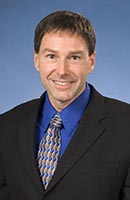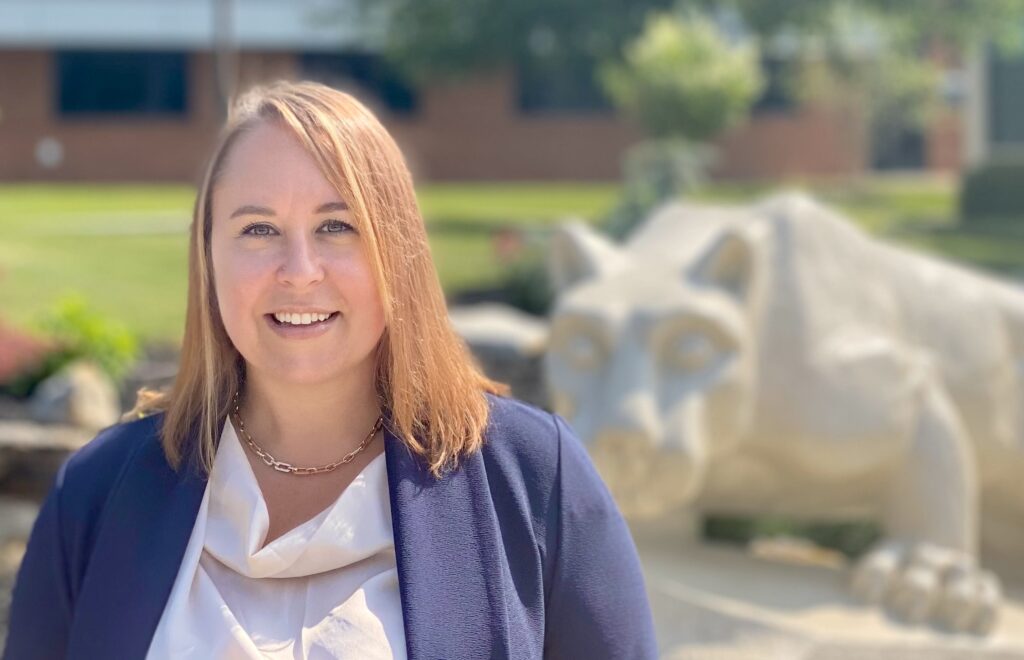Greg Filbeck is a Samuel P. Black III professor of finance and risk management, the associate director for the Black School of Business, and the department chair for Finance and Business Economics. We recently caught up with him to discuss the courses that he teaches for Penn State World Campus.

Please give our readers a sense of your background; what interested you in becoming a professor?
I have always had an interest in education — and a desire to work with college students, as it is such a critical time period in life. So many key decisions are made that will impact what follows. My undergraduate work was in Engineering Physics and Math at Murray State University (1985). I pursued an MBA program at Vanderbilt, but after the first year, I decided to transfer into a doctoral program in finance at the University of Kentucky, where I completed my degree in 1990. Finance was a great choice based on my quantitative skills and background.
How did you arrive at your position at Penn State?
I accepted the endowed professorship position in 2006 and have been with Penn State since that time. We have three sons and were entering a two-year window at that time when we could entertain such a move without disrupting their high school years. I was senior vice president of Kaplan Schweser, a positioned I loved — but I missed the academic environment. I still do instructional work for professional designations for Kaplan Schweser, which gives me the best of both worlds!
What specific courses do you teach for Penn State World Campus?
I teach the capstone course in the iMBA program (iMBA 574 – Financial Decision Making). All faculty members in the finance program at Behrend have a portion of their courses in the online environment.
You teach both residential and nonresidential students. What can each student population learn from one another?
The residential students bring a natural collaborative environment, as most of our course work involves extensive teamwork. The nonresidential students often bring a wealth of work experiences and geographic diversity that broadens horizons for all.
Can you provide some examples of ways that you’ve expanded the course experience for Penn State World Campus students?
It was very important to me for our Penn State World Campus students to feel that they were a part of our residential program at Behrend. As a result, we broadcast all our Financial Management Association meetings and the presentations from our Finance Speaker Series. This allows our World Campus students to not only view the broadcasts in either real time or on an archived basis, but also for those viewing in real time to pose questions through a student representative who is fielding their questions in a chat room environment. Currently, we are in the process of finding ways in which World Campus students can participate in decision making for the Intrieri Student-Managed Fund through stock pitches virtually. We will eventually introduce our World Campus students to competitions sponsored through professional organizations, which will allow them to come together in person at these competitions after working at a distance in preparation.
What are some unique learning characteristics that Penn State World Campus students bring to the classroom experience?
Most notably a combination of real-world experiences for those who are nontraditional in nature — and a wide range of perspectives for those geographically disbursed.
What makes you smile?
I truly and sincerely enjoy helping people succeed — to facilitate positive change, whether through professional or personal interactions.
Working in Erie, Pennsylvania — what’s the best way to survive the cold, harsh winters near Lake Erie?
Honestly, the winters rarely bother me. The Erie people are very hearty — and as long as the roads remain drivable, rarely does anything shut down.
What do you love most about being a Penn Stater?
The system truly offers the benefits of a high-touch environment here at Behrend, but the broader opportunities of a large system in Penn State. I find the Black School of Business at Behrend to be filled with forward-thinking educational leaders who propose incredible programs that are cutting-edge in nature. I love the fact that our finance program is tied so closely to financial designations as a means of bringing theory to practice.

